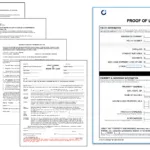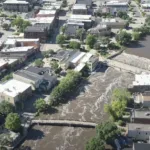Filing a homeowners or property insurance claim is daunting. It’s not something you do every day, and it’s subjected to a pile of state laws and regulations and complicated policy terms. Alabama is especially complicated because hurricane claims and other Gulf Coast issues put the insurance industry in the public eye. This can make your insurance policy more expensive and your insurance claim more scrutinized…but there is some good news for policyholders. The regulations are hyper-protective to policyholders. And if policyholders use the protections, they should have a smooth, fast, efficient, and fair insurance claim process.
These resources are built to help policyholders — and all the stakeholders who work with them, like adjusters, attorneys, contractors, and consultants. These resources will help you file your claim right, document your losses and followup through the claim process, and to escalate and resolve your claim.
Claim Filing Deadline
Reasonable Time
The deadline to make a property insurance claim in Alabama is set by the policy documents. However, generally it is a good idea to make a claim as soon as reasonably possible.
Initial Response Time
15 days
Once an insurer receives a notification of claim they are required to acknowledge the claim within 15 days.
Claim Decision Time
30 Days
Alabama generally requires that the insurer must conclude any investigation and accept or deny the claim in whole or part within 30 days of receipt of a sufficient proof of loss, but this time period may be extended.
State Department
Alabama Department of Insurance
(334) 269-35507
Alabama Dept. Of Insurance
PO Box 303351
Montgomery, AL 36130-3351
Alabama Department of Insurance Website
- Insdept@insurance.alabama.gov – Regarding Insurance Questions
- ConsumerServices@insurance.alabama.gov – Regarding Consumer Services
File your Claim Now with ClaimSpot
ClaimSpot guides you through a quick, secure, and effortless filing experience.
It’s free. Let ClaimSpot Make Your Claim Fast & Easy.
Alabama Insurance Claim Guide
Filing: Alabama Insurance Claim FAQs
All insurance claims start by informing your insurance company of the loss. You want to do this as soon as possible. There are many ways to notify the insurance company. It’s most important that you keep a record of notifying them. Here are frequently asked questions about how to best “file your claim” with the insurance company in Alabama and the state regulations that will help (or hurt) you!
In order to initiate a claim under a property insurance policy in Alabama, the policyholder only needs to inform their insurance carrier of the loss (either directly or through their insurance agent), and the facts pertinent to the claim. Alabama specifically allows notice of the loss/claim to be provided to the insurance agent, and such notice is sufficient to inform the insurance company. Additionally, Alabama specifically allows a notice of claim to be either written or verbal (or any other method allowed by the policy).
In many cases, an insurance company will call this communication a first notice of loss, or FNOL. In Alabama insurance law, this type of initial communication is called a “notice of claim” or “notification of a claim”.
While it can help to be as detailed as possible in the first communication with the insurer or agent, Alabama, as noted above, law defines notice of claim as “Any notice or notification . . . to an insurer . . . by a claimant, which reasonably apprises the insurer of the facts pertinent to a claim.”
Usually, there are a few ways by which you can inform your insurance company of the loss, including:
a. Phone call (a number is usually provided on the insurance company’s website);
b. Online portal – many insurance companies have an online form to notify the claims department of a loss;
c. Your agent (or “producer”) – many insurance companies even have a different section of their website or phone number for an agent to inform them of a policyholder’s loss;
d. Online software.
While the First Notice of Loss (or “FNOL”) doesn’t really require much information, the more information you provide your insurance company initially, and the faster you provide follow-up supporting information (including a Proof of Loss document) the faster and easier your claim can be processed and paid. Sometimes, it is impossible to provide everything that may be required quickly, and that;s ok. It’s important to be thorough and clear in your communications with your insurance company regarding your claim, and the nature of the claim may make it difficult to be quick. However, when possible, it is always better to not have your insurance company waiting on you.
1. Promptly inform your insurance carrier of the loss (see above);
2. As soon as possible begin to mitigate the damage – protect the property and secure it against further damage as soon as it is safe and possible to do so.
3. Cooperate with your insurance company and communicate with them (and keep copies of all correspondence).
4. Make your property available for inspection as soon as it is safe and possible to do so.
5. Prepare supporting documents for your claim including:
– Inventory list;
– Description of damages;
– Photographs and/or videos of the damage;
– Receipts; etc.
Reporting Deadline: Alabama insurance law does not specifically set forth any deadline for making a property insurance claim. This means that the deadline for informing the insurer of a claim is set forth by the policy itself. It is important to be familiar with the insurance policy so that deadlines are not missed.
Generally, it is a good idea to make a claim as soon as reasonably possible. While there may be a specific deadline set forth in the policy, the “deadline” may be that the claim must be made promptly, or within a reasonable time, or even “immediately.” While it is never a good idea to delay in providing the insurance company with information once it has been determined that a claim will be filed, the actual meaning of “immediate” or “prompt” or “reasonable” with respect to making a claim depends on the circumstances.
In any event, however, remember that best practice is to provide notice of the loss and claim to the insurer as soon as possible.
Followup: Document Your Alabama Insurance Claim FAQs
Notifying the insurance company about a loss is just the first step. The most important work comes next: documenting your loss and following up with the carrier. Alabama has enacted specific regulations to guarantee that the insurance company acts in a reasonable manner and moves quickly to investigate and pay your claim…but you need to understand and know how to use these regulations. That means communicating with the insurance company early and often and putting them on the clock. These FAQs will show you how.
Documentation Deadline: Just like Alabama statutes not containing a specific deadline to make the claim itself, they also do not contain any specific deadline by which a claimant must provide support of the claim or documentation of the loss – including any required proof of loss form.
Also like the deadline for making a claim, the deadline to provide support and other documentation is determined by the language of the policy itself. In many cases, Alabama insurance policies require that a proof of loss document be provided within 30-60 days after the proof of loss is requested by the insurance company.
Note, however, that no matter the actual deadline for providing supporting documentation, it is always best practice to provide a proof of loss document and support of the claim as soon as possible (while noting that the document only presents the knowledge at the time and may be amended or updated). Some deadlines for Alabama insurance companies start to run from their receipt of a sufficient proof of loss (in connection with any other items or requested forms), so getting one to the insurance company quickly is a good way to get the claim process moving along, and to get your payment.
Deadlines for Acknowledgment: Alabama has adopted regulations governing claims settlement practices in order to protect policyholders and to provide a streamlined timeline for claims to be handled.
Once an insurer receives a notification of claim (see above), they are required to acknowledge the claim within 15 days. Additionally, within the same 15-day period, the insurer is also required to provide the claimant with necessary claim forms, instructions or reasonable assistance so that the claimant can comply with the policy conditions and the insurer’s reasonable requirements.
The insurance company must respond to any communication from the claimant in which a response is requested, within 15 days from receipt of the communication.
Resolving: Get Paid & Protect Your Rights On Alabama Insurance Claim FAQs
Ultimately, the insurance claim must be approved and paid (or, unfortunately, denied). Getting to this step and getting the money has a lot of logistics…and that is if everything goes well. If all or any portion of the claim is debated (which is really common) then you need to escalate it. In either event, Alabama has regulations governing these timelines to guide the way. These FAQs show what is supposed to happen.
Deadline for Acceptance/Denial: Alabama generally requires that the insurer must conclude any investigation and accept or deny the claim in whole or part within 30 days of receipt of a sufficient proof of loss document (plus all other items, statements, and/or forms required by the insurer). This time period can be extended, but only if the insurer provides the policyholder with written reasons for the delay within the initial 30-day period, and then every 45 days thereafter.
Deadline for Payment: Alabama generally requires that any approved portion of a claim must be paid within 30 days (or the time period defined in the policy) after acceptance of liability for all or part of the claim.
An insurance company is not allowed to refuse to pay or settle claims arising under coverages provided by its policies with such frequency as to indicate a general business practice, which general business practice is evidenced by:
(1) A substantial increase in the number of complaints against the insurer received by the Insurance Department;
(2) A substantial increase in the number of lawsuits against the insurer or its insureds by claimants; and
(3) Other relevant evidence.
If the insurance company is found to have breached this obligation it can be penalized.
Additionally, and potentially more importantly for a single claimant, Alabama recognizes a cause of action for bad faith with respect to an insurance company’s refusal to pay their obligations to a policyholder. This means if the insurance company doesn’t pay when it is supposed to, and it doesn’t have a good reason, the policyholder can sue them and recover damages.
Deadlines to File Suit: The deadline to file suit against the insurance company under a property insurance policy is set by the policy itself.












